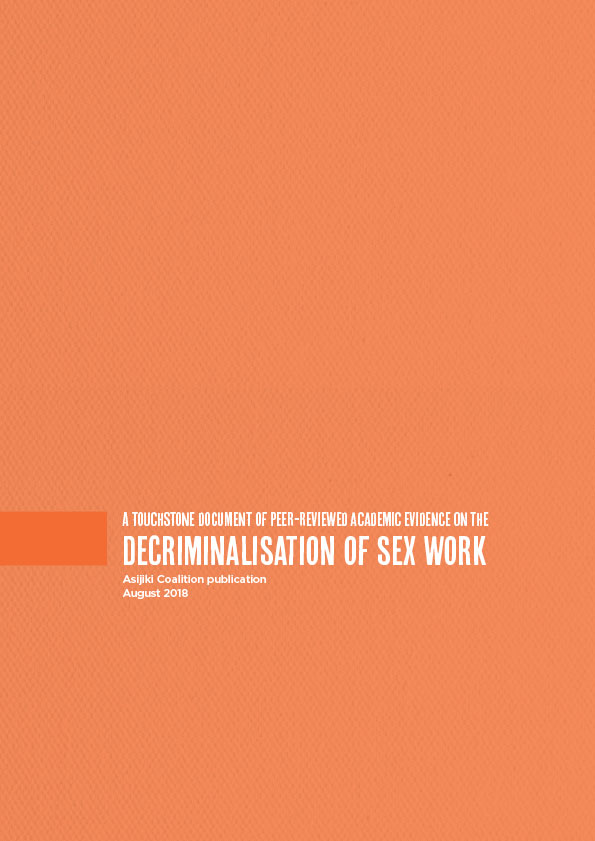This document considers and summarises the research, evidence and arguments for the decriminalisation of sex work. Decriminalisation is the removal of all criminal laws directed towards the agreed sale of sex between adults.
There is now powerful evidence that decriminalisation is the best legal model for protecting the safety, health and human rights of sex workers. Decriminalisation lessens stigma and the resulting discrimination of sex workers. It also makes it easier for people to stop selling sex if they wish to do so. In contrast, the existing legal model of criminalisation has been shown to make sex workers more at risk of violence and abuse, especially by police officers. Criminalisation also makes it difficult for sex workers to get health services and makes them more at risk of HIV, which is of great concern in a country like South Africa, where sex workers and their clients form an extremely large number of new HIV infections.
This report will set out the evidence on sex work and the law by covering peer-reviewed, academic articles on the impact of the criminal law on safety and health issues, individual sex workers and for the sex worker population as a whole. It will set out the case for why the criminal law should be removed from adult, voluntary sex work and seriously discuss the case for legalisation and partial criminalisation of sex work.


